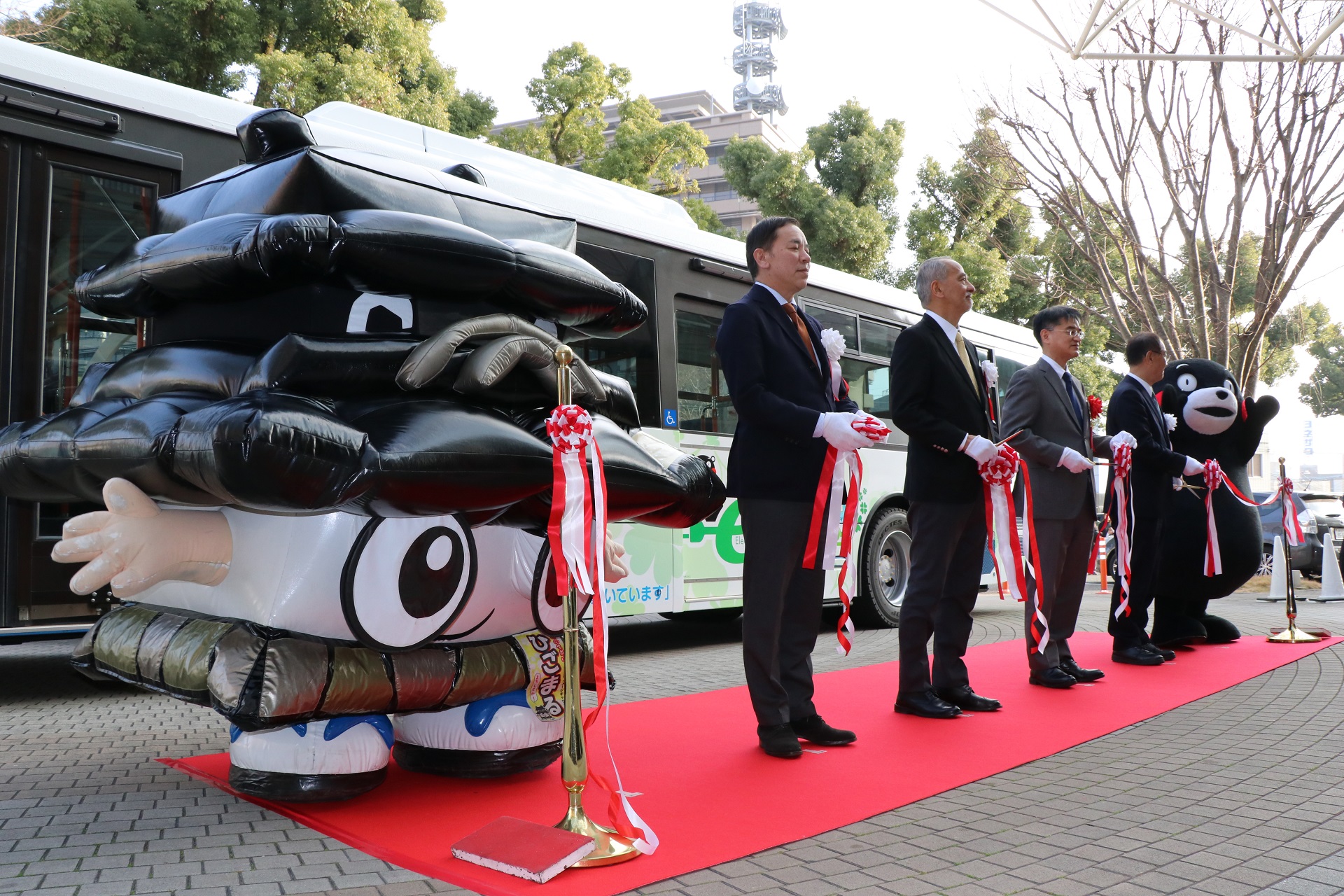

Take the biggest, nastiest, stinkiest bus you see on city roads every day, now contrast that with a lightweight, compact, efficient little zero-emission electric-vehicle. What if we could find a way to make that giant ear, nose, and eyesore as palatable as a Nissan LEAF? That’s what a project at Kumamoto University in Japan in seeking to do.
The project aims to use technology developed by Nissan for its LEAF and adapt it for use in an electric bus. The goal is to make zero-public transit more widespread and affordable. The project will bring together engineers from the automotive industry, the Japanese government, and academia. The project hopes to begin real-world testing of the vehicles in the city of Kumamoto in western Japan in February.
The first bus, named the Yoka ECO Bus, has three batteries, three electric motors, and an inverter from the Nissan LEAF. By using parts from the LEAF, the project has been able to overcome one of the largest hurdles that electric vehicle development has, the high cost of parts and development. The availability of parts for the popular LEAF, the world’s best-selling EV, makes it much easier for the project to come together. Not only is the Yoka ECO Bus filled with LEAF parts but Nissan is also developing a dedicated gearbox for the truck and is offering up technical support.

Speaking on the project Toshiro Matsuda, an associate professor at Kumamoto University and the project’s leader said, “We hope to improve Japan’s environment by standardizing the manufacturing of EV buses with help from the know-how of automakers. Our goal is to develop EV buses that are well-balanced in terms of being friendly to the environment and having low development costs.”
The partnership fits in well with Nissan’s company vision of intelligent mobility. This is one of many electric bus projects going on with different manufacturers across the globe.